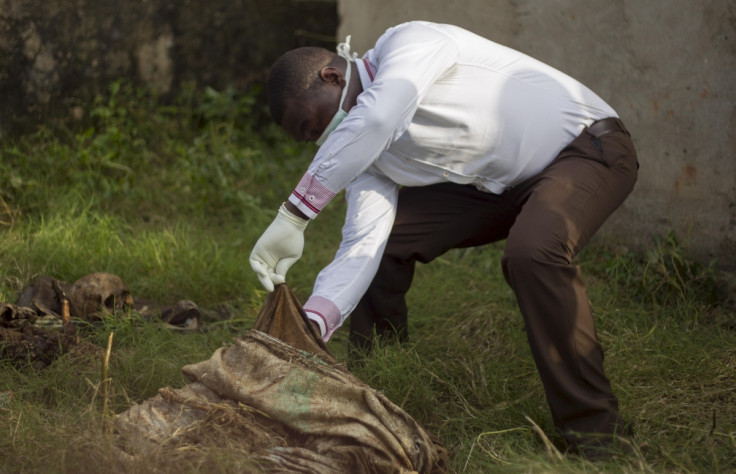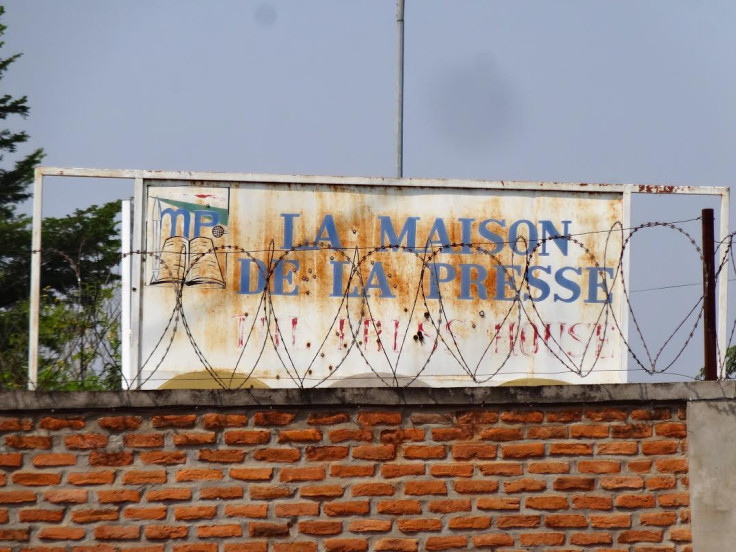Burundi: Foreign journalists helped cover up mass graves a government official claims

Following the discovery of a mass grave near Burundi's capital, the ruling CNDD-FDD party on Wednesday 2 March accused foreign journalists of covering up its macabre existence and threatened them with legal action. Earlier this week, Bujumbura mayor, Freddy Mbonimpa, who announced the Burundian authorities had discovered a mass grave with around 30 corpses in the predominantly anti-government neighbourhood of Mutakura, rejected Amnesty International's accusations that the government was behind them.
The bloody crisis that has killed up to 900 people in the country pits supporters of President Pierre Nkurunziza against those who say that his re-election in July 2015 for a third term violated the constitution. After a failed coup in May, the government intensified its crackdown and most of those arrested or missing are young men and women accused of participating in or supporting opposition groups.
In January, human rights group Amnesty International claimed it found five possible mass graves near Bujumbura, where security forces were accused of killing dozens of people in December, but the government has claimed that people buried in Mutakura had been killed by the opposition.
'Foreign journalists knew about the mass graves'
The authorities exhumed three bodies from the site in Mutakura with the press present to cover the event on Monday (29 February).
"The murderer [who allegedly told police about the existence of the site after surrendering] said they buried people there who had been killed for supporting a third term," Mbonimpa told the press.
After the police said it suspected regime opponents of having conducted politically motivated killings, Pascal Nyabenda, the president of the CNDD-FDD, accused international journalists of having covered up the existence of the mass graves.

"The discovery of the mass grave and the identification of the criminal insurgent executioners are one of the proofs that international journalists who scoured the [so-called dissident] neighbourhoods of Mutakura, Cibitoke, Ngagara, Nyakabiga and Jabe have known about these mass graves because it was all happening in front of them, and they were taking pictures."
The claims come in the context of government repression against journalists, many of whom have been forced into exile, with all the main Burundian private radio stations − the primary source of information for the majority of the population − suspended since May 2015.
Foreign journalists to be 'heard by Burundian justice'
Following these claims, Nyabenda said the CNDD-FDD was calling on three United Nations (UN) human rights experts who have been working in Burundi this week "to identify every international journalist who has been in these insurgent neighbourhoods" since May 2015, and said the journalists would be "interrogated" before "being heard by the Burundian justice".
Sahli Fadel Maya, the African Union Special Rapporteur on Refugees, Asylum Seekers, Migrants and Internally Displaced Persons and one of the experts working under the UN mission's mandate this week, responded to the CNDD-FDD's demands, adding that the question of mass graves would not be discussed.
Instead, the expert told SOS Media Burundi that the mission would focus on mass killings that occurred following the 11 December attack on army barracks − the death count of which has been set at 87 by the government, and up to 200 by the UN.
In a statement released by the CNDD-FDD on Wednesday (2 March), Nyabenda claimed foreign journalists were using methods that yielded false information.
"Some journalists from international media, who think they are smart and believe they are professional because of high-tech tools at their disposal, have never stopped lying and declaring all the time that the ruling CNDD-FDD and its government execute their citizens...The naked truth shows that they are not professional and that they only defend the interests of their leaders," Nyabenda said.

"The truth is that they are liars whose major role is to turn information against a country or an undesirable government."
The claims come just a month after British photojournalist Philip Edward Moore and fellow journalist Jean-Philippe Rémy were arrested under unusual circumstances on the afternoon of 28 January 2016 in Bujumbura by security forces of the BAE (Anti Riot Squad), and released the following day, with the authorities still holding their equipment.
Moore, who is back in the UK after his visa and accreditation were revoked, said he was not tortured during his "brief" detention, but claimed "no charges have been brought, and at no point was I offered any reason for my arrest or detention".
EDITOR'S NOTE:
Elsa Buchanan travelled to Burundi's capital Bujumbura on 22 July to cover the aftermath of the coup d'etat and the controversial elections. She has yet to be contacted by the Burundian authorities or any other investigating agency.
© Copyright IBTimes 2025. All rights reserved.





















